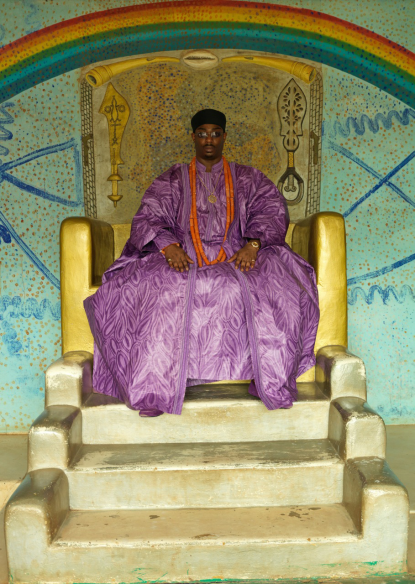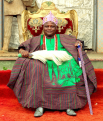 |
Address: 1146, Budapest Dózsa György út - Ötvenhatosok tere
Phone number: (1) 473-2400
E-mail: info@neprajz.hu
Opening hours: Tue-Sun 10-18
|
|
Individual ticket for adults
|
3000 HUF
|
|
|
Individual ticket for adults
(1 hour before closing)
|
1600 HUF
|
|
|
Group ticket for adults
(min. 10 people)
|
2600 HUF
|
/ capita
|
|
Individual ticket for students
|
1500 HUF
|
|
|
Individual ticket for students
(1 hour before closing)
|
800 HUF
|
|
|
Group ticket for students
(min. 10 people)
|
1300 HUF
|
/ capita
|
|
Individual ticket for pensioners
|
1500 HUF
|
|
|
Individual ticket for pensioners
(1 hour before closing)
|
800 HUF
|
|
|
Group ticket for pensioners
(min. 10 people)
|
1300 HUF
|
/ capita
|
|
Ticket for families
(2 adults + max. 3 children (up to 18 years old))
|
6300 HUF
|
/ family
|
|
Individual combined ticket for adults
(Zoom permanent exhibition + Ceramics Space + MÉTA)
|
1700 HUF
|
|
|
Individual combined ticket for adults
(We Have Arrived temporary exhibition + Ceramics Space + MÉTA)
|
2000 HUF
|
|
|
Individual combined ticket for students
(Zoom permanent exhibition + Ceramics Space + MÉTA)
|
850 HUF
|
|
|
Individual combined ticket for students
|
1000 HUF
|
|
|
Individual combined ticket for pensioners
(Zoom permanent exhibition + Ceramics Space + MÉTA)
|
850 HUF
|
|
|
Individual combined ticket for pensioners
(We Have Arrived temporary exhibition + Ceramics Space + MÉTA)
|
1000 HUF
|
|
|
Group walk ticket
(building walk, max. 15 people)
|
1500 HUF
|
/ capita
|
|
Group walk ticket for students
(Méta gallop, 10-20 people)
|
1200 HUF
|
/ capita
|
|
Group walk ticket
(building walk, in English, max. 15 people)
|
1800 HUF
|
/ capita
|
|
Group walk ticket for students
(Méta gallop, 10-20 people, in English)
|
1400 HUF
|
/ capita
|
|
Group guide
(10-20 people)
|
1000 HUF
|
/ capita
|
|
Group guide
(thematic, whit the curator of the exhibition, 5-20 people)
|
1300 HUF
|
/ capita
|
|
Group guide for students
(min. 10 people)
|
800 HUF
|
/ capita
|
|
Group guide
(10-20 people, in English)
|
1300 HUF
|
/ capita
|
|
Group guide
(thematic, whit the curator of the exhibition, in English, 5-20 people)
|
1690 HUF
|
/ capita
|
|
Group guide for students
(in English, 10-20 people)
|
1000 HUF
|
/ capita
|
|
Audio guide
|
1000 HUF
|
|
|
Photography
(for camera, camera-stand and telephoto lens)
|
700 HUF
|
"A people without the knowledge of their past history, origin and culture is like a tree without roots", said Marcus Garvey one of the founders of the Pan-African movement in the early 1900s. Documentation and preservation of culture is key to understanding the formation of the past and identity. However, it is an undisputed fact that Nigeria does not have enough cultural archives.
In the meantime, one of the largest and most important country in Africa is guarding its diverse ancient and modern traditions in its territory of many tiny kingdoms. Even before the European colonization of countless small monarchies had inhabited the region led by a king each. They addressed the villagers affairs, fulfilled the wishes of their people, and averted tyranny. The intruder British colonialists, again, appointed new kings and set up new kingdoms. Despite the fact that they have no constitutional role (the monarchy as the form of government was abolished in 1963, and Nigeria became a Commonwealth republic), the kingdoms continue to play an important role in the political life of the country. The Kings are highly regarded by their tribes, and are integral part of the country's history - despite the fact that very little information is available about them. There are no official records on the number of currently reigning kings, the number of kings is likely to be as many as the number of tribes. Unfortunately, members of the younger generation have not always been able to bind to them and identify with them. However the memories of days gone live on. The Kings keep the ancient traditions and wisdom while their power is honoured. Ancient customs, architecture, fantastic splendour: the exhibition Reigns of Nigeria shows us into the innermost circles of different tribes through the person of a king. Official portraits of the kings in full regalia is accompanied by their short biography, as well as descriptions the history and traditions of the particular tribe. The exhibition The Reigns of Nigeria provides a unique glimpse into the lifestyle of this unique personalities who guard the valuesof the past, while entering a new millennium. Travelling this diverse country I was inspired by discovering the environment and these individuals live in as they watch over our cultural heritage and peace. I wish to honour their architecture, style of clothing and personality whilst showing the visitors their rich culture as well. I think, especially at the time of uncertainty and crisis, that people consider the differences between various people a value, rather than something to oppose or a power to divide.
About the artists:
 The Nigerian photographer George Osodi lives in Lagos. He received his degree in economics from the University of Lagos, he learned photography himself. He was hired as a reporter at the magazine Comet based in Lagos. From 1999 he worked as a correspondent to for the news agency Associated Press. He has many local and international assignment. He has worked for the New York Times, Time magazine, the Guardian, the Telegraph, the London Times, USA Today, International Herald Tribune, the CBB and Der Spiegel. He has won a number of international awards with his photos, his works have been show at a lot of solo and collective exhibitions around the world. The Rulers of Nigeria is his first artistic project, which is still ongoing. The exhibition features a selection of works from the past two years. George Osodi is staying in Budapest in 18-20-ig September.
The Nigerian photographer George Osodi lives in Lagos. He received his degree in economics from the University of Lagos, he learned photography himself. He was hired as a reporter at the magazine Comet based in Lagos. From 1999 he worked as a correspondent to for the news agency Associated Press. He has many local and international assignment. He has worked for the New York Times, Time magazine, the Guardian, the Telegraph, the London Times, USA Today, International Herald Tribune, the CBB and Der Spiegel. He has won a number of international awards with his photos, his works have been show at a lot of solo and collective exhibitions around the world. The Rulers of Nigeria is his first artistic project, which is still ongoing. The exhibition features a selection of works from the past two years. George Osodi is staying in Budapest in 18-20-ig September.



